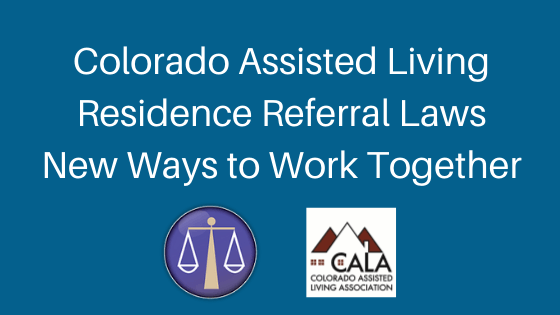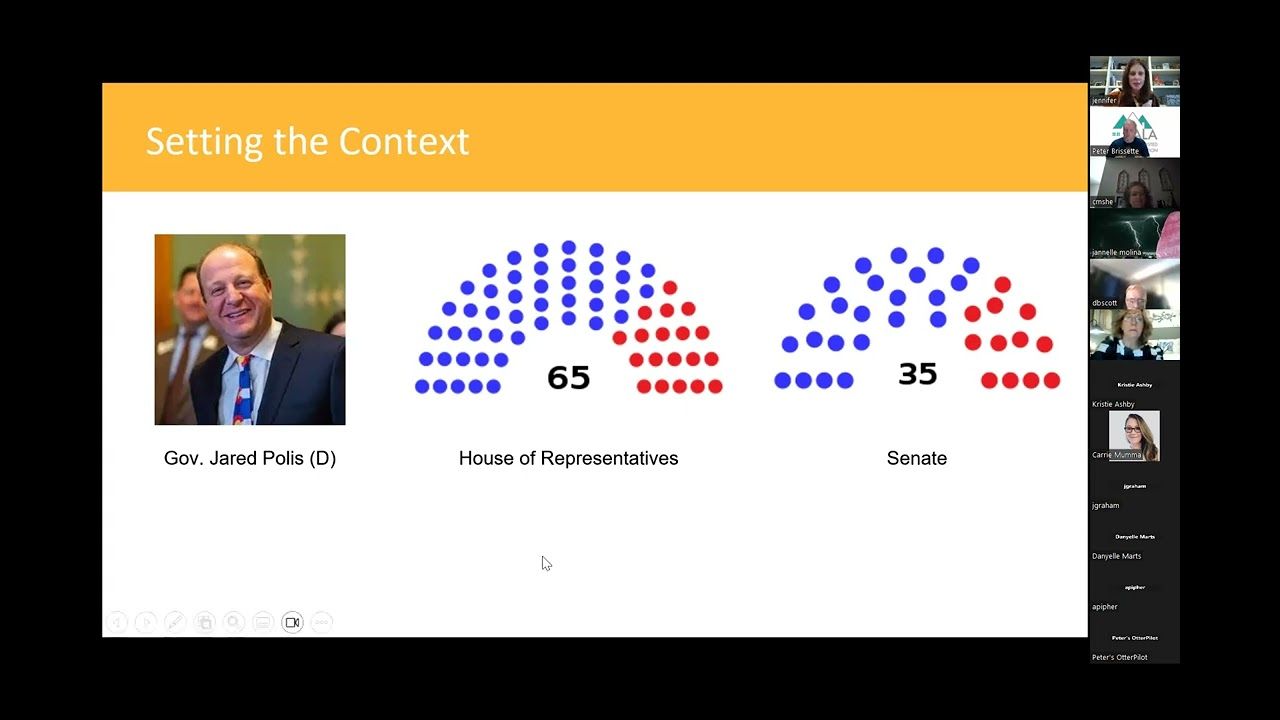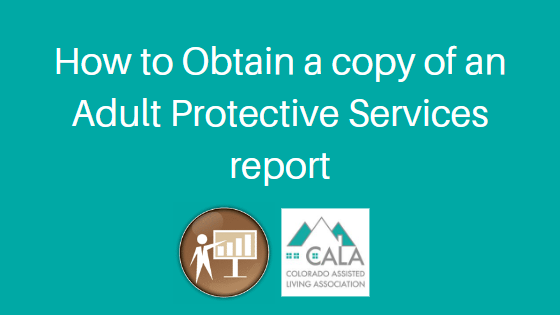New Referral Agency Laws

Colorado Assisted Living Residence Referral Laws
New Ways to Work Together
Introduction:
Prior to 2019 Colorado was the wild west when it came to the working relationship between assisted living homes and placement and referral agencies. It was an anything goes business environment.
Recognizing the need for change, The Assisted Living Association of Colorado in 2019 introduced legislation to bring order to the industry. HB19-1268, “Concerning The Referral of A Prospective Resident to an Assisted Living Residence by an Assisted Living Residence Referral Agency”. This bill passed the legislature, was signed by the Governor on August 2, 2019 and became law which set the foundation for establishing the contractual relationships between ALR’s, Placement & Referral Agents, and the clients they serve.
As time progressed, it was realized that additional reform was needed. The Greater Denver Placement Referral Alliance took up the reform banner and introduced legislation in the 2020 legislative session. HB20-1101, “Concerning A Requirement That A Referral Agency Make Disclosures To A Prospective Resident Of An Assisted Living Residence” further defined the relationship and reporting responsibilities of all the parties to a referral contract. The bill passed the legislature, was signed by the Governor and the bill will become law August 5, 2020.
Industry Sponsored Legislation
HB19-1268: “Concerning The Referral of A Prospective Resident to an Assisted Living Residence by an Assisted Living Residence Referral Agency”
Summary of Legislation: This bill requires individuals and entities that receive a referral fee for referring prospective residents to an assisted living residence (referral agencies) to disclose to a prospective resident its business relationship to the residence and that the assisted living residence has paid a feeto the agent for the referral. The referral agency and the prospective resident must sign and date this disclosure and the agency must provide the document to the assisted living residence on or before the date the resident is admitted to the assisted living residence. Assisted living residences must not pay the referral agency a fee until receipt of this documentation. Residences are required to maintain a written or electronic copy for at least one year after the date that the new resident is admitted. A referral agency that violates this section is subject to a civil penalty of up to $500 per violation. The Attorney General or a district attorney may bring a civil action on behalf of the state to seek the imposition of civil penalty for a violation of this section.
Key Points of Legislation:
- Agreement must be in writing and signed by all parties. Audio files are not written agreements between all the parties and cannot be substituted for a written signed agreement.
- Fee between the assisted living residence and the referral agency will not be paid until receipt of signed agreement. There is latitude given for circumstances beyond control of the referral agent when providing the documentation.
- Civil penalty of up to $500 per violation.
HB20-1101: “Concerning A Requirement That A Referral Agency Make Disclosures To A Prospective Resident Of An Assisted Living Residence”
Summary of Legislation: The bill requires an agreement between an assisted living residence, referral agency and a prospective resident to be in writing and include:
the right of the prospective resident or their representative to terminate the referral agency’s services for any reason and at any time; and
a requirement that, if the prospective resident terminates the services of the referral agency, that the referral agency must communicate this termination to any assisted living residences to which the prospective resident was referred.
The bill prohibits an assisted living residence from paying a fee to a referral agency if the agreement between the referral agency and prospective resident or their representative was terminated. Assisted living residences may not sell a prospective resident’s contact information without written consent. This bill also expands the definition of assisted living residence to include facilities for individuals with intellectual and developmental disabilities, long-term care facilities, and any other similar facility.
Key Points of Legislation:
- The contract between the referral agency, the assisted living residence, and the prospective resident must be in writing and signed by all the parties
- The right of the prospective resident or their representative to terminate the referral agency’s services for any reason and at any time
- The referral agency must communicate to all assisted living communities which the prospective resident was referred that the contract was terminated
- No referral fee will be paid if the contract is terminated
- May not sell a prospect resident’s contact information without written consent
- Expands definition of assisted living residence which the laws now cover
What to Do Now that Legislation has been Implemented?
With the passage of new legislation it is time to review your contractual relationships between the referral agencies that you do business with and vice versa. Both parties should get together and discuss how they will do business in the future and build upon existing business relationships. Some suggested items that should be part of the discussion would include:
- A review of the contract. Does it incorporate all the requirements outlined in the law?
- How will personal information of the resident be protected?
- Under what conditions are commissions (full or partial) to be returned?
- How to handle termination of the contract. What communications must occur between all parties when the contract is terminated?
- How to contact each other when there is a vacancy?
- What types of admissions the assisted living facility is looking for?
- What are the minimum requirements for admission into the assisted living facility?
- Compensation to be paid and when the payment will be distributed
Building Your Relationships
A new era has been established with the passage of this new legislation. Now is the time for assisted living professionals and referral agents to reestablish and enhance their working relationships for the benefit of the people they represent. The confusion and uncertainty associated with the industry has been removed . The professionalism has been enhanced and strengthen for everyone’s benefit.






